What will the future bring our education? In the light of the TU Delft Vision on Education on Wednesday 20 December, many teachers are thinking about this in several workshops. On this day, the best lecturer of the Year was chosen, and Giulia Calabretta was the lucky one.
Giulia Calabretta werd eind december docent van het jaar 2017 aan de TU Delft.
The day will be kicked off by Anka Mulder and Timo Kos. After that, teachers will have two rounds of workshops. The day will end with the Teacher Awards: the Best Lecturer of the Year, Teaching Talent of the Year and New Education Fellows, who will be awarded a two year Education Fellowship. Anka Mulder’s farewell reception, starting at 17:00, will be held in the main hall of Industrial Design Engineering. We spoke to the nominees of the Lecturer of the Year to see their vision of the future of education.
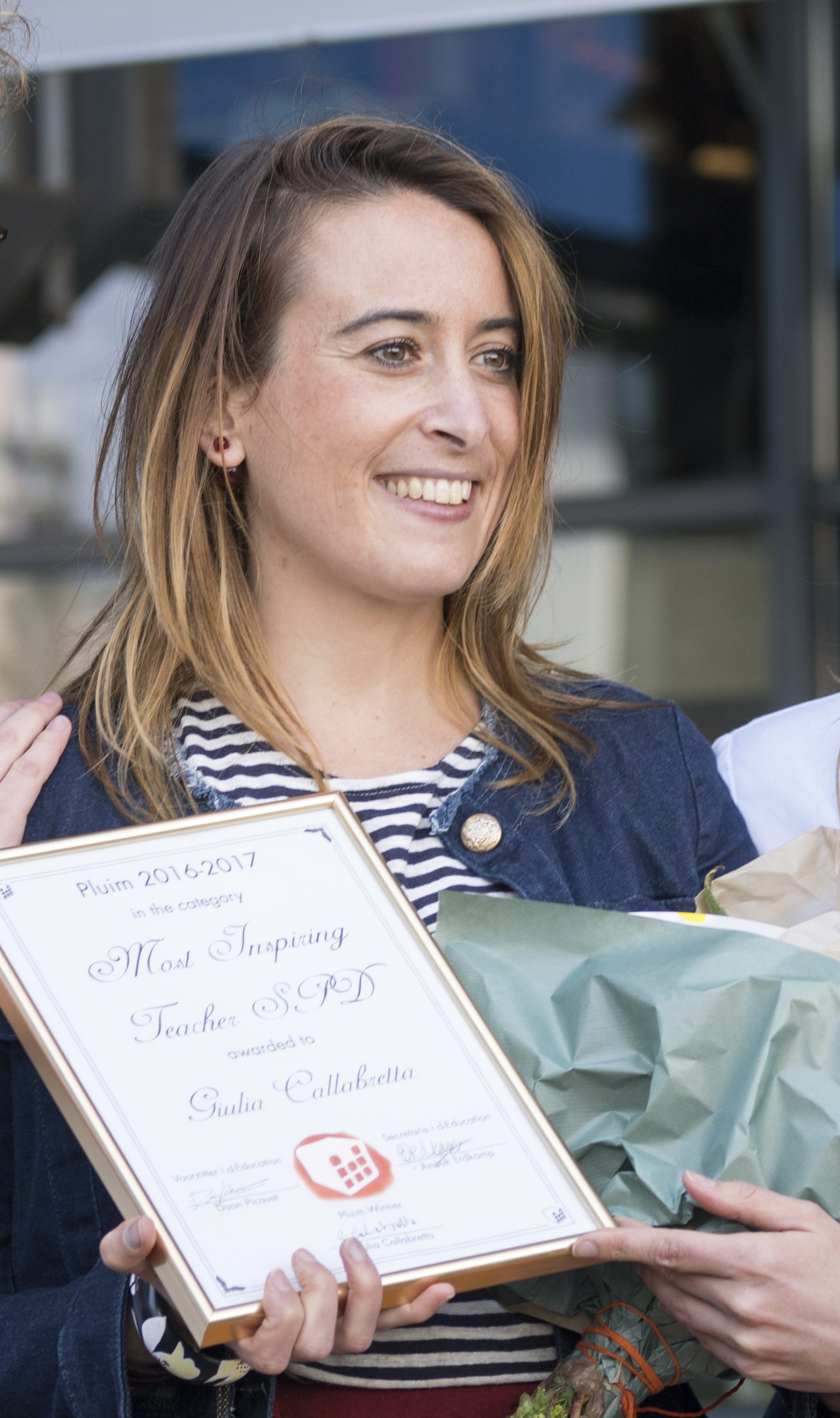

“In the future, the corporate world will be more involved in education. Instead of just teachers and students, companies too will play a role in education. I don’t see face-to-face education dying. My personal future is that I want to make sure that companies know more about strategy designers, so students can find the job of their lives. I think that as academics, we have a responsibility for our students finding jobs.”
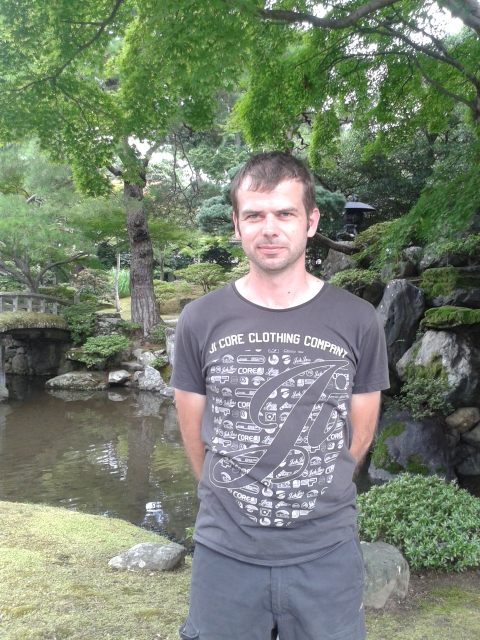

“I think the way we work will be more diverse in the future. We will work more online, though individual contact will still be important – we are not discarding individual contact. Courses will stay. But this also depends on political decisions, because they subsidise universities. If courses become a lot cheaper because Google or other digital companies fund them, it could be that The Hague cuts the amount of money they now give to universities. We have to watch out for that, because that means that we could lose quality. I do not think that much will change in teaching mathematics. The classical form of education works best, and students think this too.”
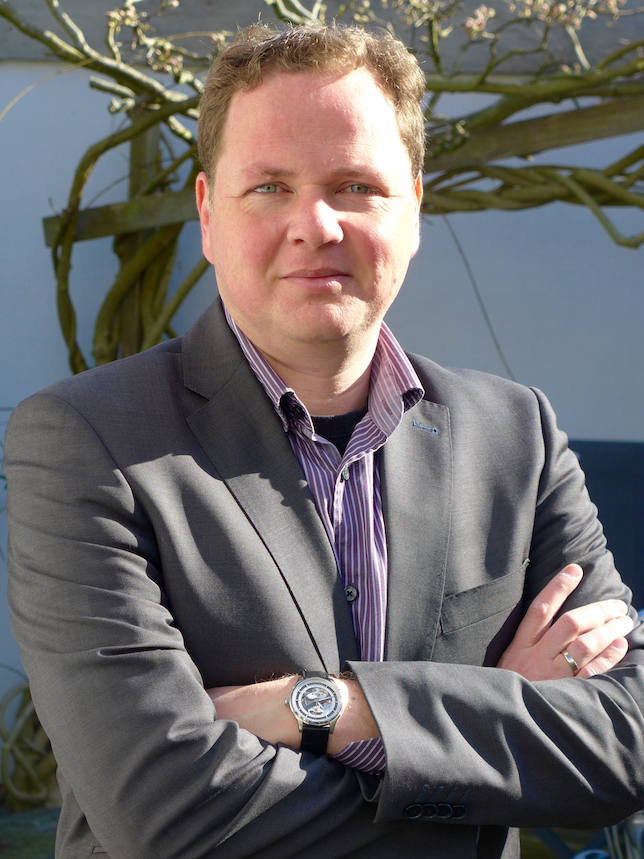

“What will the future bring us? More students that sit in parallel rooms? Are we speaking English or Dutch? I now teach in three classrooms at the same time, via a live stream. Some students prefer to watch it from home. Some students prefer to attend a live session and come to the university. It is good to see students. When I am teaching in the educatorium, I have a stage with lights. I can’t see if the students are nodding or looking blank. It is important to see if they understand what I am talking about. And to see if a joke worked!”
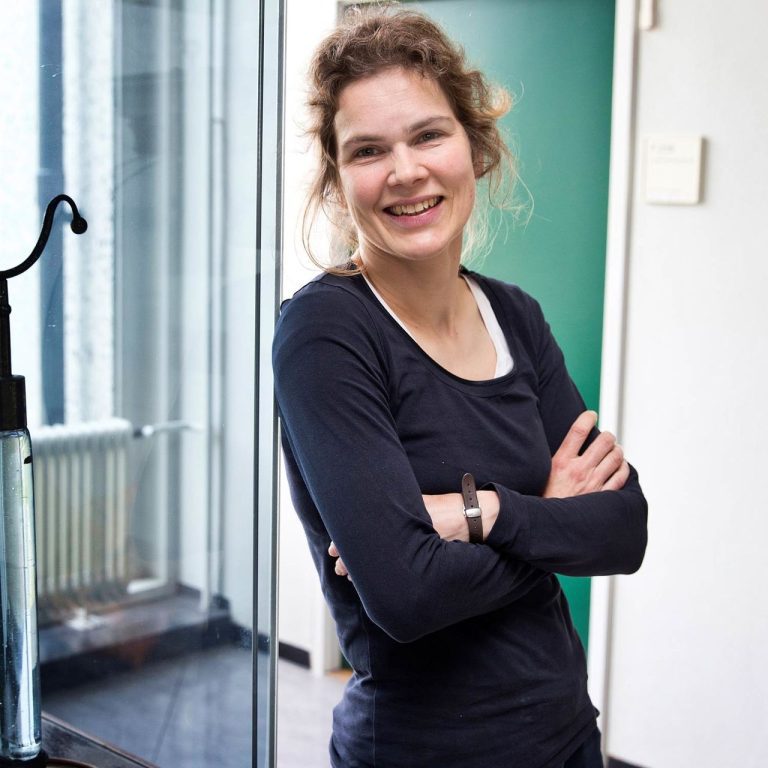

“I still use a chalkboard or whiteboard to write on during my lectures. That way, I can teach mathematics step-by-step. I think it is good that students can see the lectures at home and attend lectures to work on exercises. More and more will be online, like giving feedback on tests and exams. It is a good development that it will be available worldwide. But personal contact will be important too, because it helps sharpen thinking and understanding. I would love to make a MOOC. Maybe this nomination will give me the opportunity to do that.”
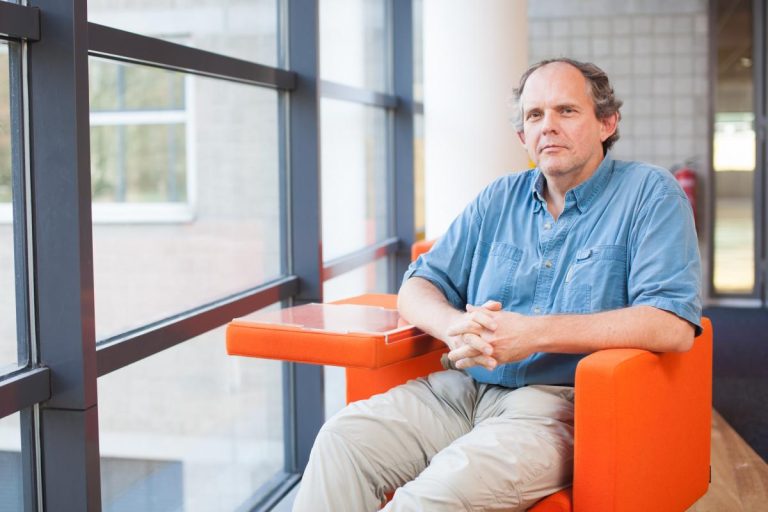

“I do not use PowerPoint in my lectures. Instead, I use a chalk board or a white board. I construct a story and write things on the board. If I draw on the board, you can see how the story develops and grows. It would be very bad if lectures would only be online. The lectures are the points in time where you are together and can ask questions. Every lecture is different. Research has shown that lecture attendance drops when lecturers use videos. It’s not that videos are that bad, but you have to read the book as well. I think that everyone is enthusiastic about online courses now and that they will become more common, also because they are cheaper. But in the end people will realise that live courses are better, and we will end up in the middle.”
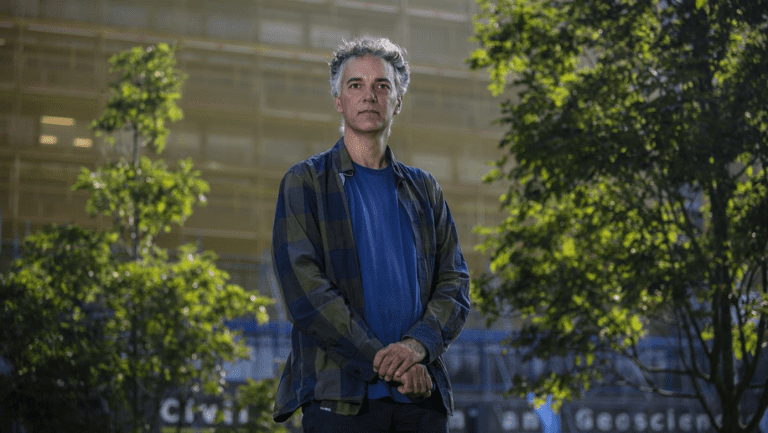

“It is great to see that I am nominated. I believe that students are the customers of the professors. Students enjoy my second-year course in the field in France. They use their phones to map the area and show where objects like trees and grass fields are. I worked on the course for years and this year it worked out well. I think using tablets and smartphones is in line with what students already do. I hope to integrate research and education more. I try to improve the course every year and change 20% of it. This way, it will stay interesting.”
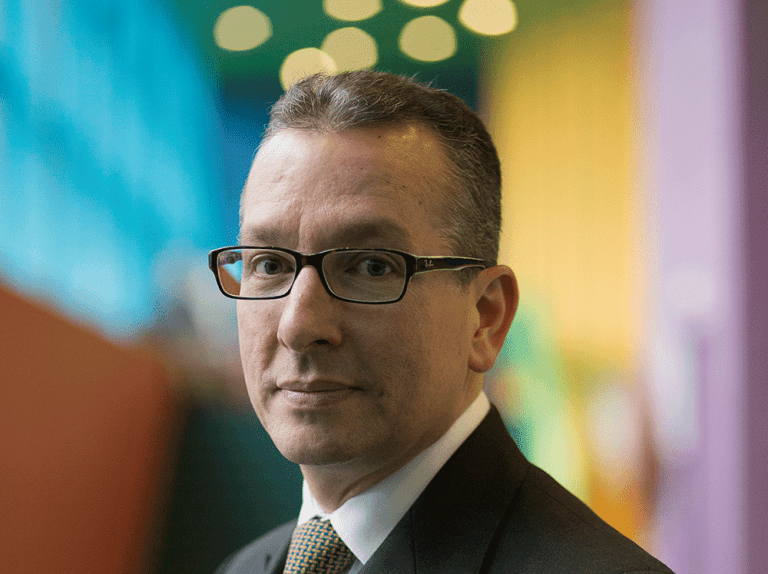

“I think the new tools we will get with the digital world will present many challenges. But we have to watch out that we don’t lose ourselves in them. Do we know more since the internet? We have to watch out that we are using the tools how we want, and not that the tools are using us. For example, take Artificial Intelligence. It is a beautiful tool, but we tend to stop learning because the computer does it for us. We don’t learn to calculate because the calculator can do that. There has to be a balance in the use of beautiful tools. A challenge for me is to show students how they can follow step-by-step explanations online. As if they are standing in front of a chalkboard.”
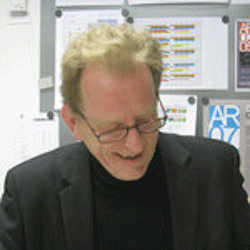

“We live in an infinitely digitising world and I find it scary. I coach graduating students face-to-face. It is important to see them and feel what they are going through. University is becoming more and more like school. I used to see university as a place for free thinkers. Now, there is no time for that anymore. Everything is becoming devalued: students want to score and get their doctorates right after they are done with graduating; it is more competitive. On the other hand, it is beautiful to see students working together and starting sustainable projects. This can also be the vision of an old man who is retiring in half a year.”
Take a look on the website for more information about Education Day.
[Last updated: 3 January 2018, Giulia Calabretta is best lecturere of the year]
Roos van Tongeren / Redacteur


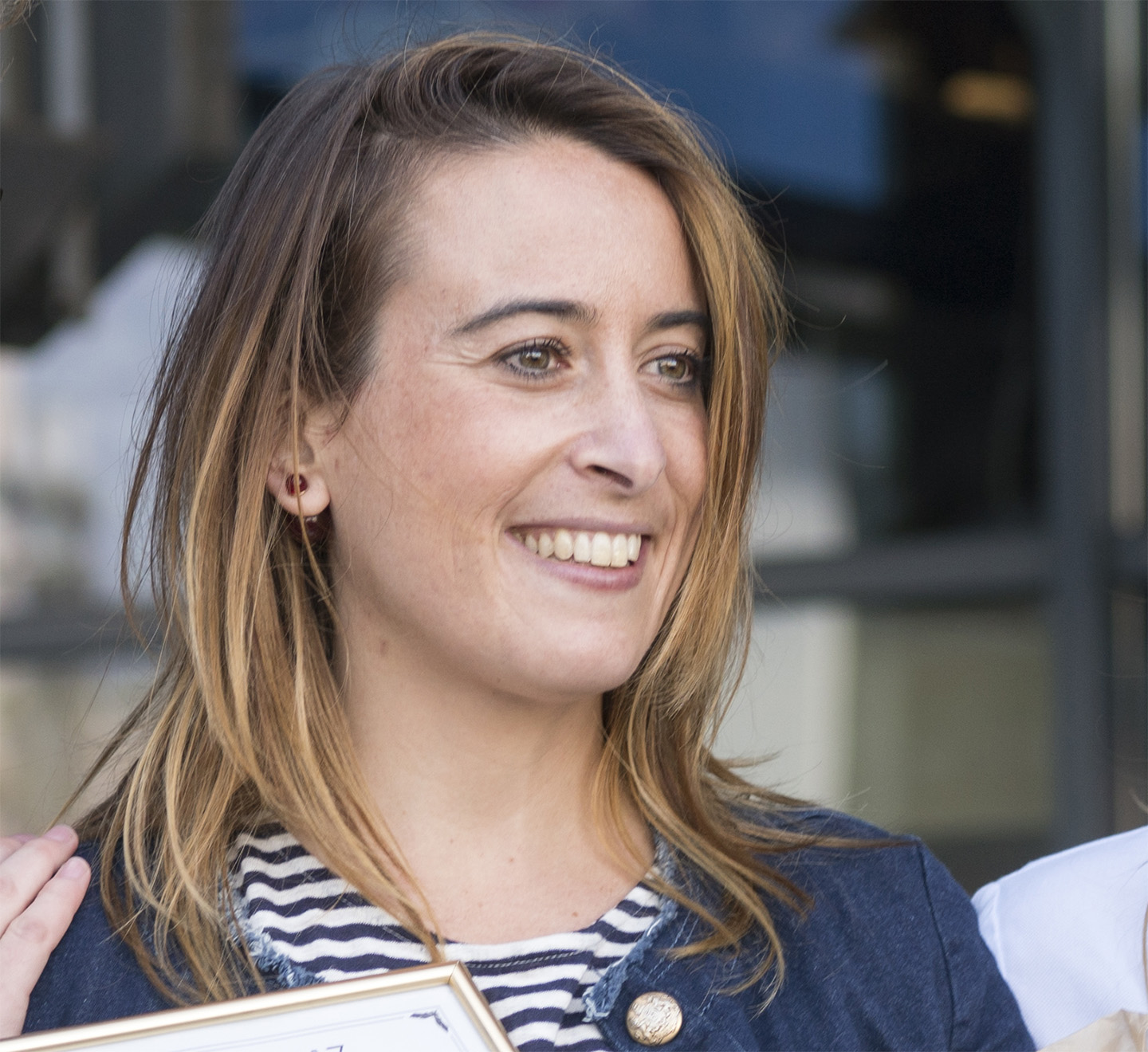
Comments are closed.